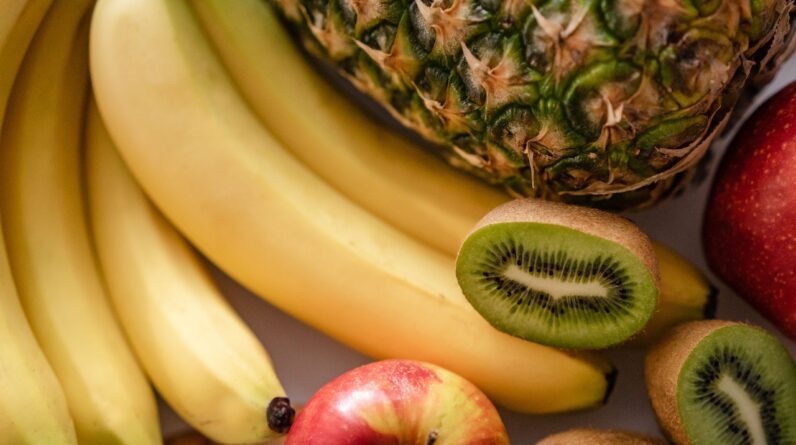
If you’re looking to lose fat, you’re not alone. In today’s society, many people struggle with excess body fat, whether it’s due to a sedentary lifestyle, poor diet choices, or other factors. Losing fat can be a daunting task, but with the right approach, it’s definitely achievable. In this article, we’ll go over some of the best strategies for losing fat, including diet, exercise, and lifestyle changes.
Understanding Body Fat
Before we dive into how to lose fat, it’s important to understand what body fat is and why we have it. Body fat is the stored energy in our bodies, and it’s necessary for survival. However, excess body fat can lead to health problems, such as heart disease, diabetes, and high blood pressure.
Body fat can be divided into two types: subcutaneous and visceral fat. Subcutaneous fat is the fat that’s right under the skin, and it’s what we typically think of when we talk about body fat. Visceral fat, on the other hand, is the fat that surrounds our organs, and it’s the type of fat that’s most strongly linked to health problems.
Why Losing Fat is Important
Losing fat isn’t just about looking better; it’s also about improving your health. When you lose fat, you reduce your risk of heart disease, diabetes, and other health problems. In addition, losing fat can improve your mental health and self-confidence.
Caloric Deficit: The Key to Fat Loss
The key to losing fat is creating a caloric deficit, which means you’re burning more calories than you’re consuming. This can be achieved through a combination of diet and exercise.
To create a caloric deficit, you need to know how many calories you’re consuming each day. You can do this by tracking your food intake using an app or website. Once you know how many calories you’re consuming, you can then create a diet plan that will help you achieve a caloric deficit.
Creating a Diet Plan for Fat Loss
When creating a diet plan for fat loss, it’s important to focus on nutrient-dense, whole foods. This means foods that are high in vitamins, minerals, and fiber, such as fruits, vegetables, whole grains, and lean proteins.
In addition to focusing on nutrient-dense foods, it’s also important to pay attention to portion sizes. Eating too much, even of healthy foods, can still lead to a caloric surplus.
Importance of Protein in Fat Loss
Protein is an important nutrient when it comes to fat loss. It helps to keep you feeling full, which can prevent overeating. In addition, it helps to preserve lean muscle mass while you’re losing fat. Aim to include a source of protein in every meal and snack.
The Role of Carbohydrates and Fats in Fat Loss
Carbohydrates and fats are also important nutrients when it comes to fat loss. Carbohydrates are the body’s primary source of energy, and they’re necessary for exercise performance. However, not all carbs are created equal. Focus on eating complex carbs, such as whole grains and vegetables, which are high in fiber and take longer to digest, keeping you feeling full for longer periods.
Fats are also important for the body, providing energy and helping to absorb certain vitamins. However, it’s important to focus on healthy fats, such as those found in nuts, seeds, avocados, and fatty fish. These types of fats have been shown to have numerous health benefits and can aid in weight loss.
Cardio and Resistance Training for Fat Loss
Exercise is an important part of any fat loss plan. Cardiovascular exercises, such as running, biking, or swimming, can help to burn calories and improve heart health. Resistance training, such as weightlifting or bodyweight exercises, can help to build lean muscle mass, which increases your body’s overall calorie-burning ability.
HIIT for Fat Loss
High-intensity interval training (HIIT) is another effective form of exercise for fat loss. HIIT involves short bursts of intense activity followed by periods of rest. This type of training has been shown to increase calorie burn both during and after the workout.
Sleep and Stress Management for Fat Loss
Getting enough sleep and managing stress are important factors in fat loss. Lack of sleep can disrupt hormone levels, leading to increased hunger and decreased metabolism. Stress can also lead to overeating and disrupted sleep patterns. Incorporating stress-management techniques, such as meditation or yoga, and ensuring adequate sleep can help to support fat loss efforts.
Consistency and Patience: The Keys to Success
Fat loss is a journey that requires consistency and patience. It’s important to create sustainable habits and to be patient with the process. Don’t expect to see immediate results, and don’t give up if progress is slow. Consistent effort over time is the key to success.
The Importance of Mindset in Fat Loss
Your mindset can play a significant role in your success with fat loss. A positive mindset can help to keep you motivated and focused on your goals. On the other hand, a negative mindset can lead to self-sabotage and giving up on your efforts. Practicing positive self-talk and focusing on progress, rather than perfection, can help to create a healthy mindset for fat loss.
Common Mistakes to Avoid
There are several common mistakes that people make when trying to lose fat. These include:
- Relying solely on exercise without focusing on diet
- Eating too few calories, leading to a slowed metabolism and increased hunger
- Focusing too much on the scale, rather than body composition
- Overcomplicating the process with fad diets or supplements
Supplements for Fat Loss
While supplements can be helpful for fat loss, they’re not necessary. The most effective way to lose fat is through a combination of diet and exercise. That being said, certain supplements, such as caffeine or green tea extract, have been shown to have mild fat-burning effects.
Conclusion
Losing fat can be challenging, but with the right approach, it’s definitely achievable. By creating a caloric deficit through a healthy diet and exercise, managing stress and sleep, and maintaining a positive mindset, you can successfully lose fat and improve your overall health and wellbeing.
FAQs
- Is it possible to target specific areas for fat loss?
- How often should I weigh myself when trying to lose fat?
- Can I still eat carbs and fats while trying to lose fat?
- What are some healthy snack options for fat loss?
- Do I need to do cardio to lose fat?
FAQ Answers
- Unfortunately, it’s not possible to target specific areas for fat loss. The body decides where it wants to lose fat from, and it’s usually the areas where fat is stored the most. However, regular exercise and a healthy diet can help to reduce overall body fat.
- It’s recommended to weigh yourself once a week to track progress. Daily fluctuations in weight can be misleading and may cause unnecessary stress.
- Yes, you can still eat carbs and fats while trying to lose fat. However, it’s important to focus on nutrient-dense, whole foods and to pay attention to portion sizes.
- Some healthy snack options for fat loss include fruits, vegetables with hummus, Greek yogurt with berries, or a small handful of nuts.
- While cardio is not necessary for fat loss, it can be helpful in creating a caloric deficit and improving heart health. However, resistance training is also important for building lean muscle mass, which can aid in fat loss efforts. It’s recommended to incorporate both forms of exercise into a fat loss plan.







